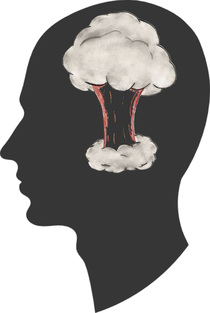
Of course, the "existential threat" contemplated by pundits and pols concerns the belief that Israel's literal existence is in the balance. They fear that a bomb, an agreement to stop a bomb, a demographic challenge, a military occupation, an evil politician, or an international campaign will bring about the death and destruction of Israel. So, of course, the intensity of fear and anger in the conversation is rising fast. How can you have a calm discussion when the premise of the conversation is that somebody is trying to kill you?
In recent days, I have read essays charging that Prime Minister Netanyahu is calling on American Jews to become traitors against the United States. I have read essays charging that American Jews who support President Obama are traitors to the Jewish people. I am appalled by the rhetoric on both sides. It is irrational, overblown, and dangerous. The temperature of this debate has reached the boiling point and it is getting worse. When we start talking about our very existence being threatened, there is no telling how far the internecine anger and hatred can go if we let it.
The ancient rabbis, too, considered the possibility that the Jewish people faced a threat that would destroy them and drive the remnant of their survivors from their land. In fact, that is exactly what happened. The rabbis lived in a time when the armies of Rome conquered Jerusalem, burned down the Temple, and exiled the Jewish people from the city that was the center of their spiritual existence.
Now that is a real "existential threat."
Today is Tisha B'Av, the fast day that marks the destruction of the First and Second Temples in ancient Jerusalem. On this day, we lament the ancient horrors that befell the Jewish people. We read in the book of Lamentations how, during the Babylonian conquest of Israel in the 6th century b.c.e., "babes and sucklings languished in the squares of the city… as their lives ran out In their mothers’ bosoms" (Lamentations 2:11-12). We can also read the Jewish historian, Josephus, who described how, during the Roman conquest of Jerusalem six hundred years later, the soldiers killed "weak and unarmed" civilians. Josephus says, "They were butchered where they were caught. The heap of corpses mounted higher and higher about the altar; a stream of blood flowed down the Temple's steps, and the bodies of those slain at the top slipped to the bottom" (Josephus, The Jewish War).
Yet, unlike today's commentators, the ancient rabbis did not locate the threat to their existence in the intentions and actions of their enemies. They saw it within themselves. They saw the cause of their suffering, not in their foreign adversaries, but in the way they treated each other.
In the Talmud, the rabbis ask, "Why was the First Temple destroyed?" And they answer, "Because of three things which prevailed there: idolatry, immorality and bloodshed." They ask, "Why was the Second Temple destroyed, seeing that in its time the Jewish people were studying Torah, performing mitzvot, and giving charity?" And they answer, "Because of free-flowing hatred [of one Jew against another]. This teaches that free-flowing hatred is of the same gravity as the sins of idolatry, immorality and bloodshed combined" (Babylonian Talmud, Yoma 9b).
I do not wish to claim that the State of Israel today would be fine and dandy if the Jewish people would just start loving each other. (I wish it were so). Israel has real external enemies who do wish the very worst kind of harm. However, I do wish to state that while we yell at each other about our existence – while we allow the rhetoric of our debate to become more and more toxic – we are doing our enemies' dirty work for them. Our free-flowing hatred may be as potent a threat to our people as any external enemy.
In a few week's time, the United States Congress will vote on the President's proposed multinational agreement intended to slow or stop Iran's pursuit of nuclear weapons. I don't know whether that is a good thing or not. I am not an expert on arms control. I do expect, though, that until that vote is taken, the Jewish community will suffer more pangs of accusations and anger – one Jew against another – that will damage our community and the very idea of k'lal Yisrael, the unity of the Jewish people.
For all I know, things will get even worse for us after the vote. In anger, the "losers" may accuse the "winners" of being dupes who have planted the seeds of Israel's destruction. The "winners" may crow triumph and call the "losers" fools for not seeing their folly. This is, after all, the current style of American politics. We have become used to the idea that winning is the only thing that matters and no amount of vitriol spent against our enemies is too much. We may not need the Iranians, Hezbollah or Hamas to destroy us. If we follow the path of "free-flowing hatred," we may just do the job ourselves.
My plea on this darkest day of the Jewish year is simple. Listen to our tradition. Understand what the rabbis meant when they said that the uncurbed enmity of one Jew against another is as bad as idolatry, immorality and bloodshed combined. The rabbis believed that our self-directed anger and hatred would ultimately lead us to worship our own opinions, to rape the foundations of civility, and to kill the love that unites us as a people. I fear that they might have been right.
Prove me wrong.
Other Posts on This Topic:
Not Turning Away from Grief
Tisha B'Av Comes Just in Time

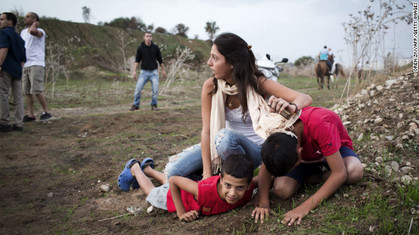

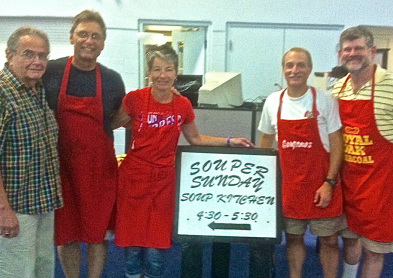
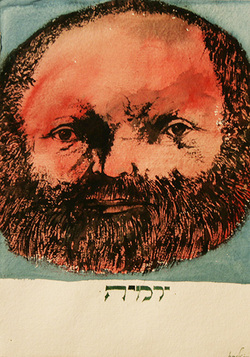

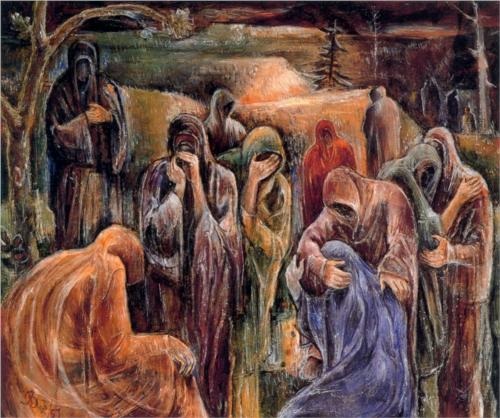

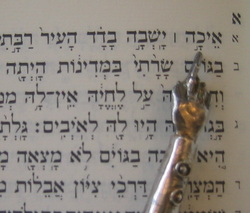
 RSS Feed
RSS Feed
